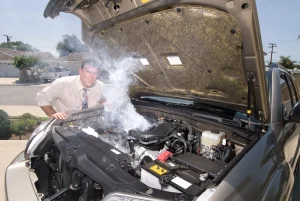What Happens If You Don’t Call the Police After an Accident in Texas

When it comes to road accidents, Texas faces a grim reality: in 2022, one person lost their life in a motor vehicle accident every 1 hour and 57 minutes in the state.
After a collision, parties may opt not to involve the police, choosing instead to exchange information and handle matters privately. However, in such cases, where costly repairs and serious injuries are present, and no police report is created documenting the crash and its cause, what are the implications?
What Happens if You Don’t Call the Police After an Accident in Texas?
If the police do not respond to the scene of an accident in Texas, you are supposed to file a crash report if the accident results in fatal injuries, death, or property damage worth $1,000 or more. Failure to file the crash report could lead to legal repercussions, including penalties of up to $5,000 and/or imprisonment.
Skipping a police report can also hinder compensation efforts for accidents that were not your fault, complicating proof of the other party’s negligence.
Additionally, not involving the police after an accident in Texas could also increase your vulnerability to being sued. Without an official police report documenting the incident, the other party involved in the accident might claim that you were at fault, leading to potential legal actions against you.
Why Should You Report an Accident to the Police?
Reporting an accident to the police is an important step following any traffic incident, regardless of the legal obligation to do so in your jurisdiction. Here are several benefits and reasons for reporting an accident to the police:
- Legal Documentation: A police report serves as official evidence of the accident, with details on the date, time, location, and involved parties, crucial for legal and insurance purposes.
- Objective Account: Police reports can offer an objective view of the accident, which is essential when the involved parties have conflicting stories.
- Insurance Claims: Insurance companies will often require a police report to efficiently process claims and determine fault and liability.
- Legal Protection: The report can help defend against legal claims by documenting the incident accurately.
- Accurate Information Exchange: Police help ensure that all information and insurance details exchanged at the scene are correct and complete.
- Detecting Illegal Activities: Reporting can uncover illegal activities, such as driving under the influence or driving while distracted, which can help support your claim.
Even if it is not always legally required, reporting a car accident to the police is always a prudent step. It aids in the smooth processing of insurance claims and provides essential documentation that can be invaluable in legal disputes.
Why Should You Consult an Attorney After an Accident?
Consulting with a car accident attorney after an accident, especially in Texas, where laws and regulations can be complex, offers numerous advantages:
- Knowledge of Texas Law: A Texas-based attorney has specific knowledge and experience with the state’s legal system, including statutes of limitations, comparative fault rules, proof requirements, and the Texas Department of Transportation’s reporting requirements.
- Protecting Your Rights: Every action you take after an accident can have legal implications. An attorney will advise you on your rights and the best steps to protect them.
- Maximizing Compensation: An experienced attorney can assess your damages and losses, including medical expenses, lost wages, physical impairment and pain and suffering. They’ll work to ensure you receive full compensation for these losses by negotiating with insurance companies or taking your case to court if necessary.
- Reducing Stress and Providing Peace of Mind: Dealing with the aftermath of a car accident can be overwhelming. Having a lawyer manage the legal and administrative aspects allows you to focus on your recovery. Knowing that a professional is advocating on your behalf can provide significant peace of mind during a stressful time.
Ultimately, consulting with a car accident attorney after an accident in Texas is highly recommended, no matter what the circumstances are.
Legal Requirements to Report an Accident in Texas
In Texas, the legal requirements for reporting a vehicle accident are in place to ensure that significant incidents are officially documented and that the safety and legal rights of all involved are protected. Here’s a breakdown of the conditions under which you are required to report an accident:
- Death or Bodily Injury: If the accident results in injury to or the death of any person, it must be reported. This ensures that law enforcement can provide necessary assistance, conduct an investigation, and file a report for insurance and legal purposes.
- Property Damage Exceeding $1,000: Texas law requires that any motor vehicle accident resulting in property damage exceeding $1,000 be reported. This threshold is relatively low, meaning most accidents involving vehicle damage will require a report. The evaluation of damage isn’t always straightforward at the scene, so when in doubt, it’s safer to report and wait for the police to arrrive.
Additionally, the Texas Department of Transportation (TxDOT) advises parties to call the police in certain situations, regardless of the apparent severity of the accident:
- The vehicles cannot be moved
- You suspect the other driver is under the influence
- The other driver does not have insurance
- The other drivers leave the scene of the accident
Reporting an accident ensures that an official record of the incident is kept, which is crucial for insurance claims, legal protection, and, when necessary, holding responsible parties accountable.

No Police Report? Here’s how your lawyer can help
If a police report was not obtained following an accident, it can hinder your ability to prove your case.
While police reports offer a preliminary account of the accident, their contents – beyond basic facts like the location, date, and time – are considered the officer’s observations and opinions. These reports can support negotiations but are not always dispositive.
Here’s how your lawyer can assist in the absence of a police report:
- Third-Party Witnesses: An attorney can help identify and interview witnesses who saw the accident. Their testimonies can provide independent accounts of what happened, which can be compelling evidence in court or during settlement negotiations.
- Video Recording: Lawyers know where to look to find possible video footage from surveillance cameras near the accident scene or from traffic cameras. These recordings can offer clear, unbiased evidence of the circumstances surrounding the accident.
- The Car Itself as Evidence: The vehicle(s) involved in the accident can serve as critical evidence. An attorney can arrange for a professional examination of the damage when necessary, which can help reconstruct how the accident occurred and demonstrate its severity.
- Accident Scene Recreation: In some cases, lawyers may employ accident reconstruction experts. These specialists can recreate the accident using the available evidence, providing a visual and technical analysis of how the accident happened, the force of the impact, and more.
An attorney’s experience in navigating car accident claims ensures that even without a police report, you have a strong foundation for your case.
Navigating an Accident Without a Police Report in Texas – Contact The Callahan Law Firm
Given the intricacies involved, it’s advisable to seek legal assistance when navigating the aftermath of an accident without a police report.
An experienced car accident attorney can provide invaluable guidance on collecting evidence, meeting legal requirements, and effectively communicating with insurance companies or opposing parties. This support is crucial in ensuring that the accident details are accurately determined and that your rights are fully protected.
If you find yourself in this position, The Callahan Law Firm is ready to help. We will work to ensure that you navigate these complexities with confidence and secure the compensation you rightfully deserve. Contact us today to schedule a no-cost consultation with an experienced car accident lawyer.
FAQ
Do you need a police report to file an insurance claim in Texas?
While not strictly necessary for all insurance claims, having a police report can significantly streamline the process. Insurance companies often rely on these reports to determine fault and liability. However, you can still file a claim without one, but be prepared to provide other forms of evidence to support your claim.
What happens if the other driver is not willing to wait for the police or the police are not able to come?
If the other driver leaves the scene before the police arrive or if police cannot come, try to gather as much information as possible, such as photos of the scene, damage, and any visible injuries. Collect contact and insurance information from the other driver and witnesses and then wait for the police to arrive and report the incident yourself.
Is it illegal to not report an accident in Texas?
Under certain conditions, it’s illegal not to report an accident in Texas. Specifically, accidents involving injury, death, or property damage exceeding $1,000 must be reported. Failing to do so can result in legal penalties, including fines and, in some cases, more severe charges, especially if an injury or fatality is involved.
How long can you file a police report after an accident in Texas?
The Texas Transportation Code requires that any reportable crash must be filed within 10 days of the accident if a police officer does not investigate the scene.
Is it a crime to leave the scene of an accident in Texas?
Yes, leaving the scene of an accident, also known as a hit-and-run, is a criminal offense in Texas. The severity of the charge can range from a misdemeanor to a felony, depending on the circumstances. Penalties for leaving the scene can include fines, prison time, and the suspension of driving privileges.

Michael S Callahan is an attorney and founder of The Callahan Law Firm. He focuses his practice on representing individuals and families in personal injury cases involving motor vehicle and truck accidents, workplace accidents and defective products. With over 25 years of experience, he is dedicated to fighting on behalf of people whose lives have been forever altered by the negligence and carelessness of corporations and individuals. Originally trained as a mechanical engineer, Michael has been practicing law and fighting for justice for those who need it most since 1994. He is board-certified in Personal Injury Trial Law by the Texas Board of Legal Specialization and a member of various esteemed legal associations. Outside of work, Michael enjoys spending quality time with his family, outdoor activities, and continually striving to improve as a trial lawyer and human being.











